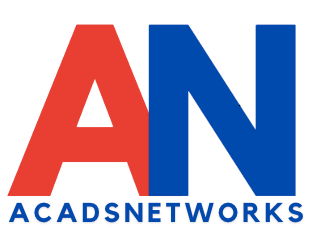Government staff in Canada can browse through healthcare grants & loans. Examine various options available for funding such professionals with training, growth, and financial assistance.
Such essential personnel include nurses, physicians, as well as several other healthcare providers, who are critical in promoting the health and wellness of the population. To help these people, Canada has a range of grants and loan programs to help pay for education, help them advance in their careers, or even help them overcome personal financial issues. If you’re just entering the health sector or looking to update your professional skills, there are various financial aid programs that can assist you. This article will present important healthcare grants and loan programs targeting government employees in the health care industry.
- Canada Student Loan Program (CSLP)
The Canadian government has instituted the Canada Student Loan Program, which assists students studying in post secondary educational institutions that are in health and other fields. The student assistance scheme helps students supplement tuition fees including books as well as subsistence allowances for learners throughout the period of study. This loan is open to those who qualify for income and residency conditions.
- Eligibility:
Students need to apply as Canadian citizens, or Permanent Residents, or Protected Persons as well as have a qualified status in one of the programs of the registered post-secondary institute in order to apply.
- Application Process:
Students wishing to avail themselves of the Child Survivor Loan Program (CSLP) do so by applying through the National Student Loan Service Centre(NSLSC). The application entails providing an individual’s personal and/or financial details along with the program in which the person is going to enroll.
- Funds Available:
The amount of financial assistance owed will adjust accordingly depending on the student’s program of enrollment, proof of need, and the province in which they live. The student will start repaying the loan amount once they graduate, and the interest rates as well as flexible parameters will enable them to pay back in easier installments.
- Healthcare Professional Education Loans
For workers already in the healthcare sector, these loans can be applied for to further the qualification or even the skill set in the profession that they are already working in. These loans are highly convenient for doctors, nurses, allied health and other occupations who wish to acquire further expertise in their field.
Eligibility:
These loans can be availed by the professionals of the public healthcare sector with a permanent employment at a public center such as a hospital, community, or long-term care services facility. Also, there is a requirement in some cases to be able to provide working in neglected territories or in certain specializations.
Application Process:
This process usually involves evidence of employment allied with details of the professional development program that the person wants to undertake. There is the provision of applying through the individual’s employer and also through provincial funding healthcare agencies.
Funds Available:
The scholarships do differ in terms of the amount of money available, but the loans do often cover the entire tuition costs for advanced education or training. In certain circumstances, there may be provisions for postponement or even cancellation of loan payments for those who have been engaged in public healthcare for a specified period of time.
- Indigenous Health Career Funding
The grants and loans are available specifically for indigenous peoples who are willing to undertake a career in the health sector. This, In turn, provides support for the training, education, and professional development activities of Indigenous people in such healthcare professions such as nursing, medicine, or a mental health practitioner.
- Eligibility:
Indigenous peoples of First Nations, Inuit and Métis can apply if they are enrolled in a valid healthcare-related course in an accredited college or university.
- Application Process:
Applicants can apply through various Indigenous funding programs operated by the Government of Canada as well as schools. The proof of indigenous status and the proof of enrollment into a health care program are usually required.
- Funds Available:
The funds may recompense the cost of the tuition fee, cost of books, cost of maintenance, and cost of journey for the people who are studying outside their home province. Besides, there also seems to be scope for scholarships and stipended traineeship in the healthcare sector
- Canada Student Grant for Services and Equipment for Persons with a Permanent Disablity
Though the grant is availed by healthcare workers with permanent disabilities but the Canada Student Grant for Services and Equipment for Persons with a Permanent Disability aims to support the Individuals’ healthcare education by providing them with special support services such as specialized tutors or appropriate equipment. Eligibility: This aid is applicable for schools that cater students who are pursuing degrees on both full time and part time basis and who are permanently disabled In addition, this aid is also available for students studying in healthcare sector. Application Process: This grant is provided at the same Forum where funds under the Canada Student Loan Program are disbursed. However, proof of the disability and the level of support required for the specific person is also required. Funds Available: The range of requirements that can be encompassed by the grant include special devices which include mobility and communication as well as personal services such tutors or teaching assistants. 5. Financial Assistance for Healthcare Workers in Rural and Remote Areas Commencing work in an area that is not highly populated and does not have many healthcare professionals has its disadvantage and this is supported by the Canadian government which gives out funds in forms of grants and loan forgiveness as an incentive for such healthcare wokers who decide to practice in such undeserved area.
- Eligibility:
In rural communities, healthcare professionals including doctors, nurses, and allied health professionals are required to provide services and under certain conditions are offered financial assistance or grants that are tied to the certain terms and conditions attached including the amount of time the worker will be fixed in the rural area.
- Application Process:
Funding applications are made by submitting agreements through provincial or territorial healthcare ministries. Upon approval, health workers customarily sign for a contract wherein they are to provide specific services for a specific contract period in the set out rural or remote designated area.
- Funds Available:
Provincial funding assistance includes financial incentives such as relocation assistance, mortgage clearance among others and sometimes remission of taxes, housing assistance among other financial options. Other options include some programs where there is an assurance of full or partial remission of loan upon completion of a designated service period.
- The Health Workforce Strategy Fund
The Health Workforce Strategy Fund increases the recruitment and retention of health workers in areas adversely affected by less number of health workers. Family medicine, nursing and mental health are key areas that a government worker focuses on, thus the program targets health workers willing to work in those areas.
- Eligibility:
Priority for approval goes to team members working in government health organizations or those who work in areas where demands for health workers are not met.
- Application Process:
They can take the post-graduate course by applying directly to their provincial health authority or via various government sponsored programs. The application usually requires an agreement that the physician will practice in the designated region for some time.
- Funds Available:
The funds can assist in recruitment, training and retention programs. For workers in designated areas of critical shortage, the government can assist them by providing financial incentives, for instance signing or retention bonus payment.
- Loan Forgiveness for Healthcare Workers in Underserved Communities
There is a gap in healthcare provision in rural and under developed areas. For healthcare professionals working in such areas, there is great suffering as their wages are low and loan determines their qualification. The Loan Forgiveness for Healthcare Workers Program is intended to alleviate such lenders problems by writing off some of their student loans so long they keep working in these areas.
- Eligibility:
Working in designated areas or underserved areas as addressed in the previous section allows the healthcare professional to be registered when working in this program. The applicant is also required to plan a long stay in such communities.
- Application Process:
To be able to apply in this program, applicants are required to have a job with a provincial or territorial healthcare ministry or have worked for the Canadian Student Loan Centre. Besides, they have to submit evidence of working with a specific employer and country.
- Funds Available:
In this program, loan forgiveness is disbursed in piecemeal form meaning that workers are forgiven loan based on the number of years they serve in the specified underserved community.
- Application Process:
An application for provincial and territorial grants can be done through respective health ministry or educational institutions.
- Funds Available:
The amount available differs from province to province, however, it is typical that it Nos fundei advisable and includes a certain percentage, not exceeding 100%, of the worth of the certificate training programs as well as other relevant costs such as examination fees for certification.
Public Service Health Care Plan (PSHCP):
The Public Service Health Care Plan also called PSHCP is also a health benefits coverage offered for poer default manager and even healthcare workers who are in the government sector. The scheme insures individuals for the cost of medical expenditure which the provincial health plan does not cover.
- Eligibility:
PSHCP can only be used by government employees that form part of the first line of the health care team within the public institutions in the country.
- Application Process:
Most government employees are enrolled to PSHCP without doing anything. They only have to fill a form to join the scheme and select the level of coverage they require.
- Funds Available:
Specified drugs, eye-care and dental treatment are only a few of the wide range of health expenses that are insurable according to the selected plan under the PSHCP.
Conclusion
The public health care workers in Canada appear to be surrounded by a plethora of grants, loans and other financial assistance schemes that aim to advance their educational qualification, professional expertise as well as assist them in their personal financial challenges.. Therefore with an understanding of such resources and by applying for suitable programs, members of the healthcare sector are able to obtain the financial backing necessary to succeed and continue providing crucial assistance to Canadian clients.
References:
- Canada Student Loan Program:
- Indigenous Health Career Funding:
- Canada Research Chair in Health Sciences
- Public Service Health Care Plan


